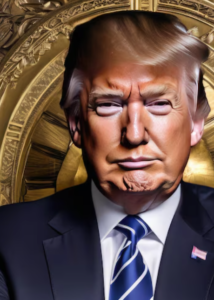$MOEX $RUB $BTC
#Russia #Putin #FoodPrices #Inflation #Economy #Geopolitics #Sanctions #WarImpact #GlobalMarkets #Agriculture #Oil #Commodities
Russian food prices have witnessed a sharp surge in recent months, a trend that is putting significant strain on household budgets across the nation. President Vladimir Putin, however, has categorically denied that these economic pressures are a result of Russia prioritizing military expenditures over domestic welfare—a comparison often described as “butter for guns.” Instead, he places the blame squarely on “unfriendly nations” and their sanctions, suggesting that external geopolitical antagonism is the primary driver of inflationary pressures. While global markets are keeping a close eye on Russia’s domestic economy, the soaring food costs are just one part of a broader picture of economic disruption stemming from the ongoing conflict and its ripple effects. Food remains a key indicator of public sentiment, and though public criticism is subdued due to political constraints, these rising prices are deepening fissures within Russia’s economy.
The inflation trajectory is partly due to disruptions in agricultural imports and exports, with sanctions from Western nations throttling Russia’s access to key technologies, seeds, and fertilizers. Agricultural productivity has been hit, compounding supply-side issues. On the other side, Russia’s retaliatory restrictions on global food markets, including curbs on grain and fertilizer exports, have further isolated its economy. This has had a devastating impact on household affordability, as staples like bread, dairy, and meat see price increases in double digits. Financially, the tighter sanctions and limited foreign currency flows have contributed to a weakened ruble ($RUB), further inflating import costs. Global market analysts are also closely monitoring agricultural commodity prices on the Moscow Exchange ($MOEX), which has seen heightened price volatility as traders anticipate continued food inflation in the region.
Despite these inflationary headwinds, the Kremlin is projecting an air of defiance, insisting that it is successfully adapting to the challenges. Yet, the numbers tell a different story for the average citizen. Publicly available data indicates wage growth is failing to keep pace with inflation, eroding purchasing power. This economic imbalance has further implications when considered alongside energy exports—the backbone of Russia’s revenue. While oil and gas markets remain robust, the benefits of these exports are increasingly being diverted toward military and geopolitical objectives rather than addressing domestic economic concerns such as subsidizing basic goods. The central bank’s policies, including interest rate hikes to curb inflation, have done little to address the food sector’s structural issues, leaving consumers to feel the brunt of economic instability.
From a global perspective, food prices in Russia serve as a bellwether for the broader effects of geopolitical fragmentation. The sanctions aimed at punishing Russia for its military actions are producing mixed results. While they’ve successfully isolated key sectors of Russia’s economy, they’ve also introduced turbulence into global agricultural markets and supply chains. Cryptocurrencies like Bitcoin ($BTC) are seeing increased adoption as some citizens seek to protect their wealth amidst the declining ruble and rising inflation. Global commodity investors are also weighing the potential for Russia’s policies to exacerbate food insecurity in emerging markets reliant on its grain and fertilizer exports. Ultimately, these soaring prices not only reflect the domestic challenges faced by Russia but also underscore the interconnectedness of global markets in times of geopolitical conflict.











Comments are closed.